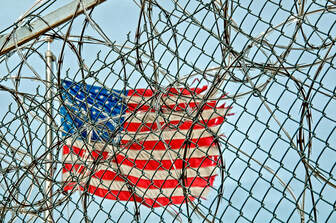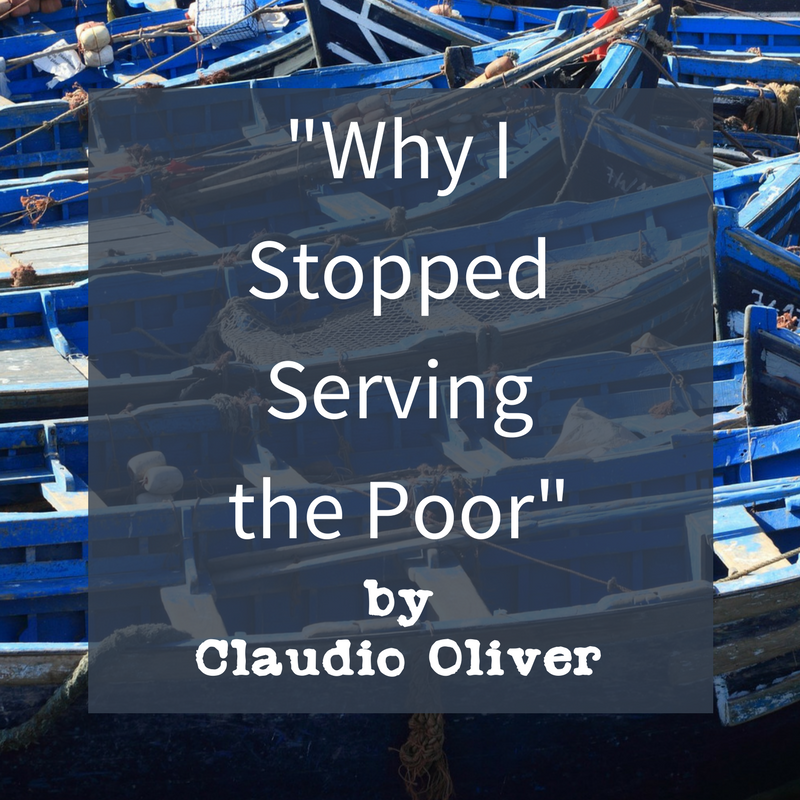|
Learning about systemic injustice is a spiritual discipline, a formational practice of social energies. – Dominique Gilliard (Rethinking Incarceration, p 118)  In the past six months, I’ve had distinct experiences where I saw the Imago Dei both dehumanizingly oppressed and beautifully expressed in similar contexts. At the end of September, I was able to visit to the Ursula Processing Center & the Port Isabel Detention Center in McAllen, Texas with Welcome an initiative with World Relief and the National Immigration Forum. (See the short film Eyes to See about my trip along with a discussion guide.) In January, I visited Walker County Faith & Character Based Prison in north Georgia. The juxtaposition of visiting these two institutions reveals how important the Imago Dei is for those on the margins of society. Port Isabel Detention Center embodied what we often think of as justice, and what I call American Justice: locked doors, laws, rules, bars, cages, dehumanizing language, portable bathrooms with a door that only covers shoulders to knees, trauma, clear distinctions between Border Patrol and immigrant, silent immigrants with blank stares who rarely looked me in the eyes, fear evident in the eyes of those who did make contact, basic necessities and nothing more, orange and blue jump suits. Some Border Patrol officials confessed that they must turn off their emotions in order to do the job. Phrases like, ‘human being’ or ‘fellow’ or even ‘immigrant’ were not once used by BP. Instead I heard ‘alien’ and ‘illegal’. “The aliens also get $1 a day if they choose to work,” said the BP tour guide. A can of coke cost $1.75 in the vending machine nearby, reminding me how certain systems are built for transactions only, not for relationship. (Many more details of this event can be found in my upcoming book, Separated by the Border, to be published October 29, 2019 with InterVarsity Press.) I came away from that experience with the thought engraved on my heart: If justice is what I seek for myself, I must become more and more aware that my justice is intertwined with the justice of all of humanity. Indeed Dr. Martin Luther King Jr. words from Strength to Love came more alive within me. Walker County Faith & Character Based Prison in north Georgia embodied what I know of as Biblical justice: no locks on lockers, rules that differ by levels depending on how long one has been at the prison, no bars, no cages, no dehumanizing language—in fact, without the [white] uniforms, I would have been confused as to who was staff and who was incarcerated, lots of eye contact (and I saw no fear in their eyes), education, education, and more education. The chaplain and the incarcerated spoke to each other and to our group as if they were old friends. Everyone I spoke to at Walker spoke to me with amazing public speaking skills, and each had several passions they were pursuing: painting, music, graphic art, theological studies, etc. I honestly forgot I was in a prison while being there. Each man (there are no women there) spoke about how much time he had already served and how much more he will have to serve. They spoke of church services, seminary classes, choral concerts, conflict resolution, families, and what they did to help those who didn’t have families supporting them. There was a sense of communal shalom behind those walls that I was not expecting to see—not only behind prison gates, but on this Earth ever. In his book Rethinking Incarceration: Advocating for Justice that Restores, Dominique Gilliard maps out what Biblical justice is: “Biblically, justice is a divine act of reparation where breached relationships are renewed and victims, offenders, and communities are restored. Justice, therefore is about relationships and our conduct within them. Justice asks, How is righteousness embodied and exuded in how I live in relation to God, neighbor, and creation?” (Rethinking Incarceration, 139) I discuss how injustice begins with dehumanization in the first chapter of my book A Smoldering Wick. Believing in the Imago Dei imprinted on every human being means we must actively fight against dehumanization: which can be in the form of lowering another’s God-given self worth and in the form of exalting another human to demigod status. In both instances, the dehumanizer is taking away the humanity of another human being. In both instances, the dehumanizer is playing God and marring the identity of the other. “Let us make man in Our image, after Our likeness.” (Genesis 1:26) As Christians, working toward the reconciliation of people (including ourselves!) with God, with self, with each other, and with creation involves coming face to face with dehumanization in all its forms. For example, it’s quite easy for me as a writer to dehumanize successful writers. I imagine them living their easy lives and being fed publishing contracts and speaking opportunities and it’s just so easy in that moment to both negate their humanity and to justify my jealousy. What areas can you easily justify dehumanization? Being a Christian means we recognize the areas we dehumanize others, and we hold captive those thoughts and submit them to our God who says every human being was made in His image. Being a Christian means we also call out dehumanization when it is happening to others. We cannot be lukewarm bystanders. Gilliard brings to light the call of the prison chaplain. “Responsible chaplaincy entails holistic ministry: caring for the soul and body.” I saw this embodied so well at Walker. The faithfulness of the chaplain we met with was evident not by what he was telling us, but rather by what the men around him would say about him. Gilliard continues, “The best chaplains take time to learn about the systems and structures funneling people into their parish. They educate themselves about systemic injustice—not to condone or encourage a victim mentality, nor to excuse criminal behavior—because this equips them to do contextualized ministry.” I was asked recently how people can get involved in the issues surrounding immigration in the United States. While I will be devoting a whole section in my book to address this, I think it’s important to see what Gilliard says here. For those looking to get involved in the ministry of reconciliation among immigrants, one very important step is to learn about the systems and structures that are funneling people to the border. I won’t say this is the first step or even the best step, but it is an important one that must come alongside a self awareness that says we are not immune to dehumanizing forces. It’s easy for me to say I’d never speak to an immigrant the way I saw Border Patrol doing so, but if that was my job and I couldn’t find another and I had children to feed and house, well, who knows? I have to be careful not to dehumanize those who seem to be clear dehumanizers, and remember that I am as prone to wander as my Border Patrol brother is. “The ultimate weakness of violence is that it is a descending spiral, begetting the very thing it seeks to destroy. Instead of diminishing evil, it multiplies it. . . Returning violence for violence multiplies violence, adding deeper darkness to a night already devoid of starts. Darkness cannot drive out hate; only love can do that,” said Martin Luther King Jr. in Where Do We Go from Here: Chaos or Community? Darkness is within us as much as it is in the unjust systems we often unwillingly perpetuate. But light is also within, and seeing Walker County Faith & Character Prison is a beautiful reminder that community is capable of bringing out the light within us. And community is capable of calling our systems to what Paul calls “a more excellent way” — the way of love.
0 Comments
Leave a Reply. |
Gena's
|

 RSS Feed
RSS Feed

